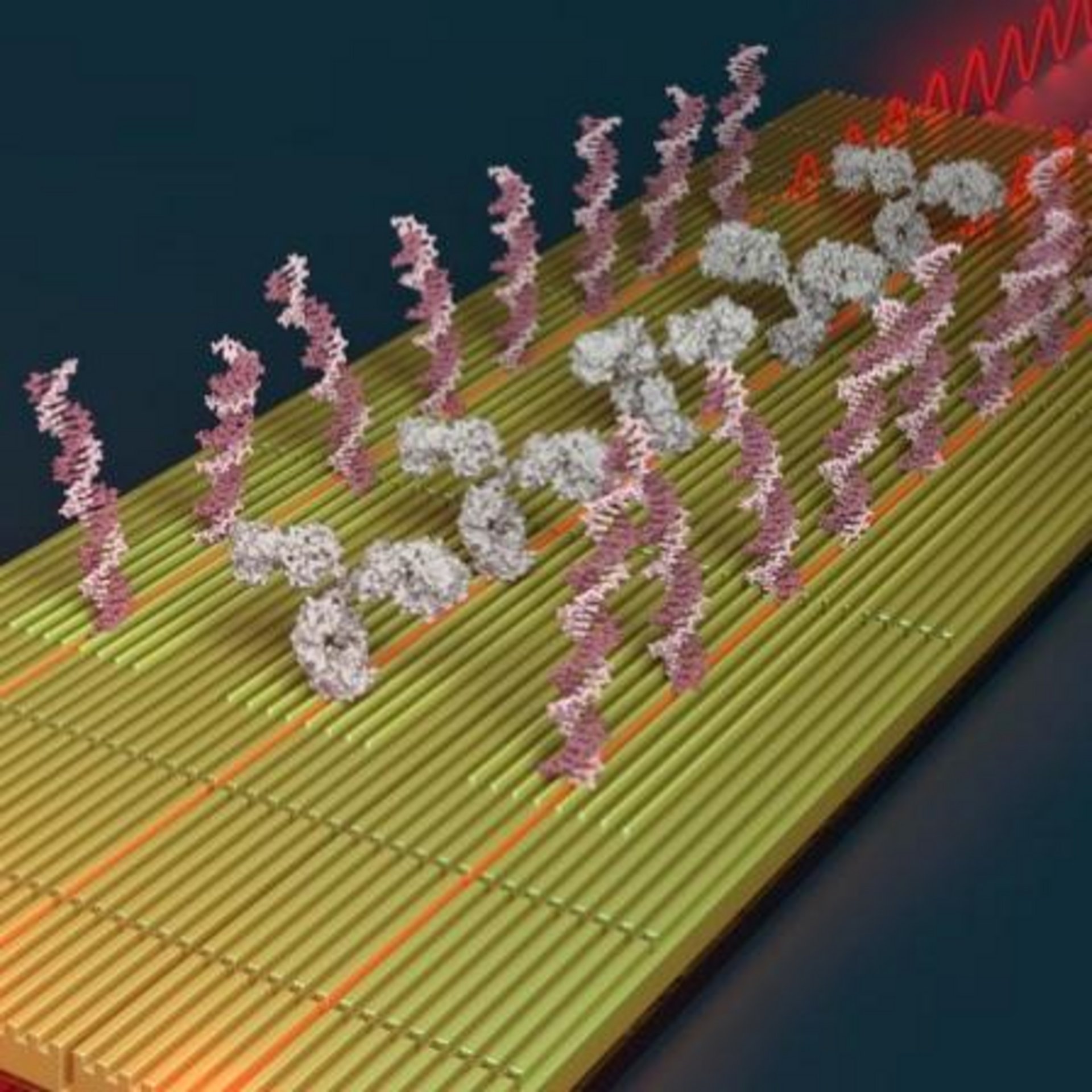
We investigate novel, scalable approaches for sensing biomarkers, down to the single-molecule level, for point-of-care diagnostics
Biomolecular sensors are set to become an integral part of society and will enable us to monitor a range of (bio)chemical processes on and in the body, in the environment, and in the biotech, agricultural and food production chain. This will prove essential for the transition toward personalized and sustainable healthcare, a healthy living environment for humans as well as animals, and an efficient food production. In order to integrate biosensors into a plethora of devices and provide real-time and accurate data at the point-of-need, we require highly miniaturized biosensors incorporating very sensitive and specific transduction (e.g. photonic or magnetic) with an integrated read-out and signal processing system. This will not only ensure efficient integration in small devices that are easily deployed, but also turnkey operation without requiring highly skilled personnel.
We aim at demonstrating highly multiplexed sensors (for up to 100 biomarkers) for biomolecular measurements at the point-of-need, with sensitivity and specificity rivalling laboratory assays. We will further explore the next frontier, namely diagnostic analyzers exploiting single-molecule sensitivity to provide detailed information on conformation and interactions at the molecular scale. Ultimately we aim at miniaturizing such digital single-molecule assays, currently possible only on research-grade microscopes, to the level required for their practical application by the general practitioner, in industrial production lines and even inside the body.
This research line will strongly rely on the TU/e expertise in material science, biomolecular engineering, integrated photonic technology, nanophotonics, microfluidics, electronics, signal processing and organ-on-chip technology. It will establish close cooperation with national and international industry in the healthcare, chemical, agrofood and biotechnology sectors, aiming at the effective valorisation of the research results.